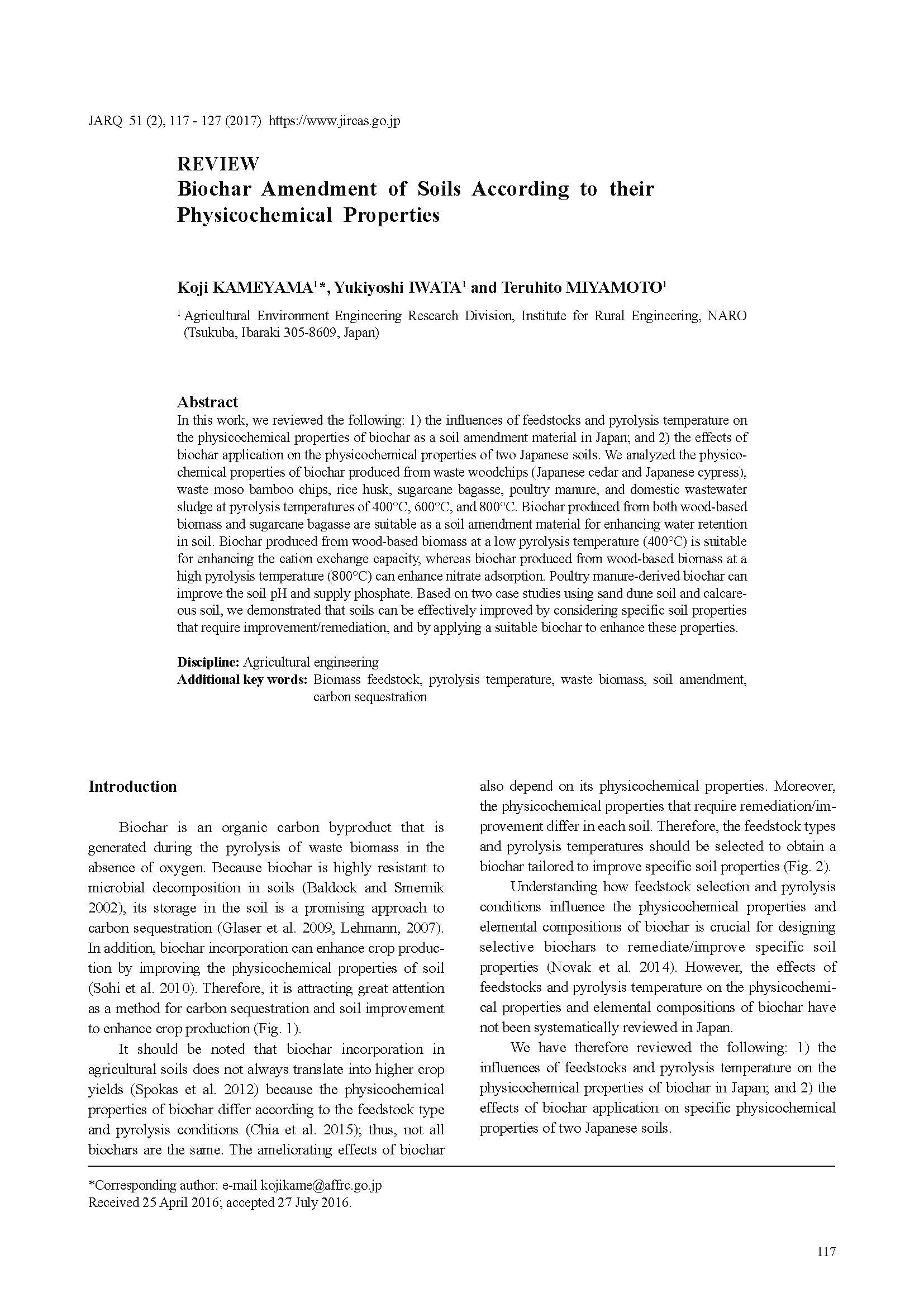Biochar Amendment of Soils According to their Physicochemical Properties
| ISSN | 00213551 |
|---|---|
| NII recode ID (NCID) | AA0068709X |

In this work, we reviewed the following: 1) the influences of feedstocks and pyrolysis temperature on the physicochemical properties of biochar as a soil amendment material in Japan; and 2) the effects of biochar application on the physicochemical properties of two Japanese soils. We analyzed the physicochemical properties of biochar produced from waste woodchips (Japanese cedar and Japanese cypress), waste moso bamboo chips, rice husk, sugarcane bagasse, poultry manure, and domestic wastewater sludge at pyrolysis temperatures of 400°C, 600°C, and 800°C. Biochar produced from both wood-based biomass and sugarcane bagasse are suitable as a soil amendment material for enhancing water retention in soil. Biochar produced from wood-based biomass at a low pyrolysis temperature (400°C) is suitable for enhancing the cation exchange capacity, whereas biochar produced from wood-based biomass at a high pyrolysis temperature (800°C) can enhance nitrate adsorption. Poultry manure-derived biochar can improve the soil pH and supply phosphate. Based on two case studies using sand dune soil and calcareous soil, we demonstrated that soils can be effectively improved by considering specific soil properties that require improvement/remediation, and by applying a suitable biochar to enhance these properties.
| Date of issued | |
|---|---|
| Creator | Koji KAMEYAMA Yukiyoshi IWATA Teruhito MIYAMOTO |
| Subject |
Biomass feedstock pyrolysis temperature waste biomass soil amendment carbon sequestration |
| Publisher | Japan International Research Center for Agricultural Sciences |
| Available Online | |
| NII resource type vocabulary | Journal Article |
| Volume | 51 |
| Issue | 2 |
| spage | 117 |
| epage | 127 |
| DOI | 10.6090/jarq.51.117 |
| Rights | Japan International Research Center for Agricultural Sciences |
| Relation | : J-STAGE |
| Language | eng |
